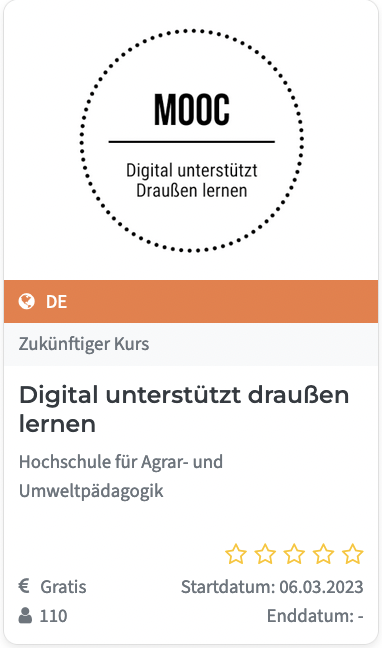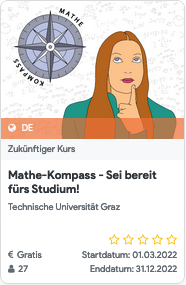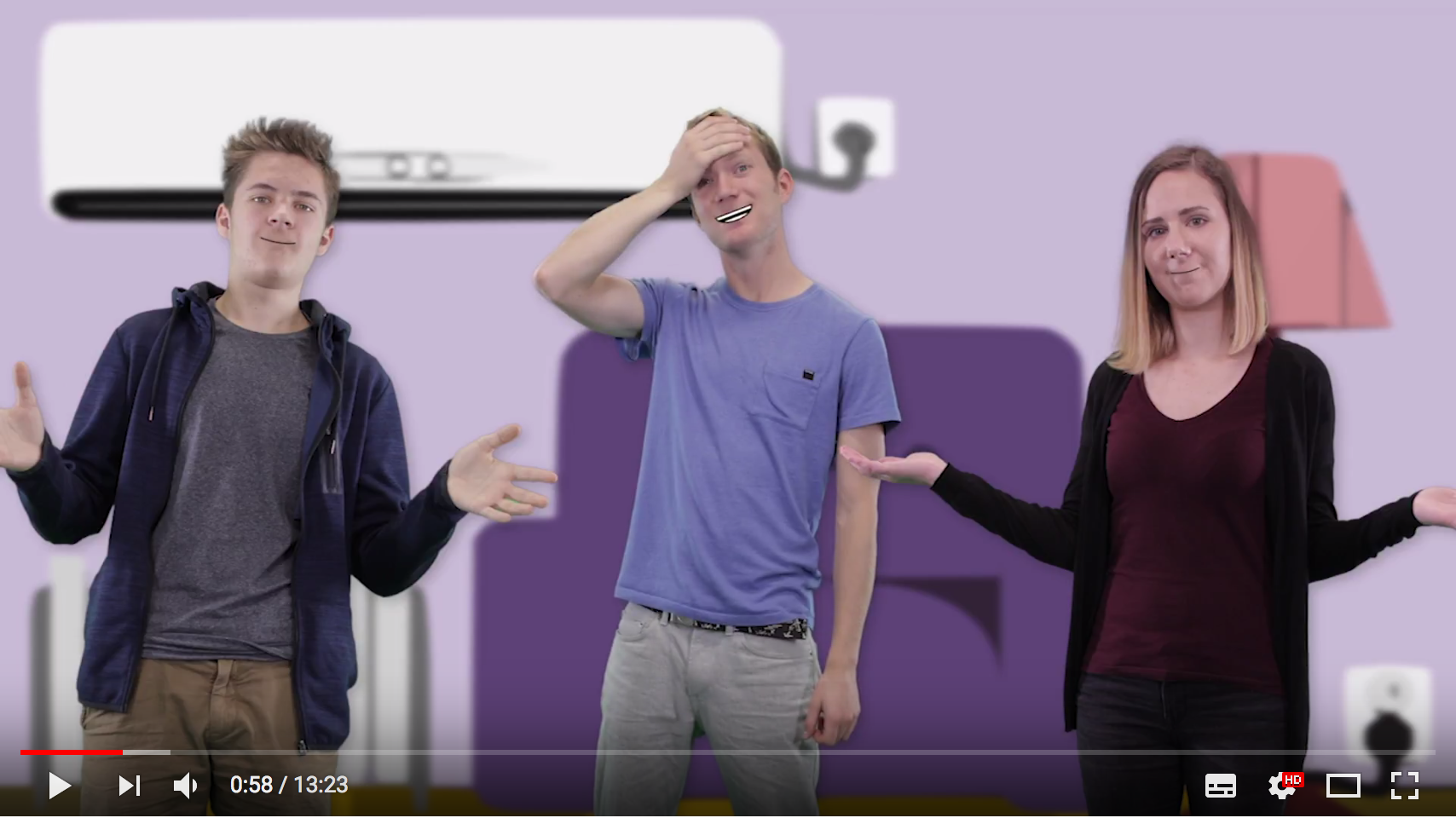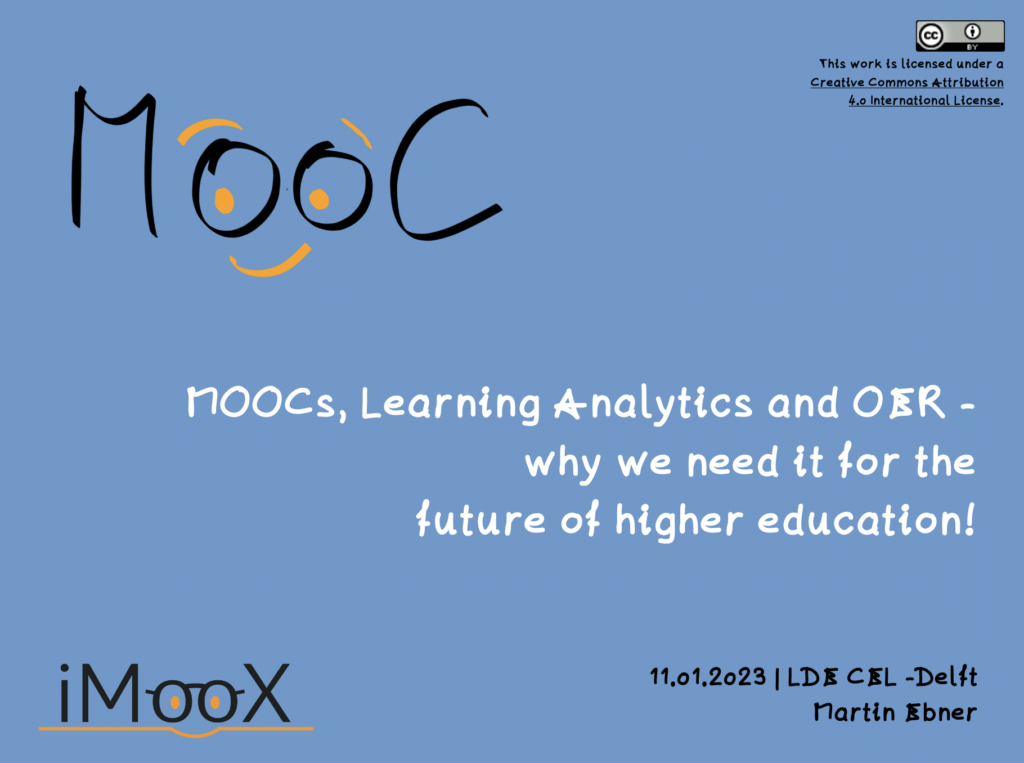Unser gemeinsames Kapitel zu „Erwachsenenbildung und MOOCs“ ist nun als Buchkapitel erschienen – vielen Dank vorweg auch für die gute Zusammenarbeit.
Zusammenfassung:
Mit der Abkürzung MOOC für „Massive Open Online Courses“ werden Online-Kurse bezeichnet, die mehr als 150 TeilnehmerInnen erreichen. Diese Lern- und Darbietungsform von Inhalten für sehr viele Personen, auch aus unterschiedlichen Einrichtungen und persönlichen Situationen, ist auch für die Erwachsenen- und Weiterbildung interessant. Auf der österreichischen MOOC-Plattform iMooX.at werden seit 2014 MOOCs mit offen lizenzierten Bildungsmaterialien von Hochschullehrenden angeboten, die ohne weitere Zugangsvoraussetzungen (wie z. B. Hochschulreife) genutzt werden können. Einige der Online-Kurse sind explizit der Erwachsenen- und Weiterbildung zuzuordnen und werden von EB-Einrichtungen (mit-)veranstaltet. Die Verantwortlichen für diese MOOCs mit insgesamt etwa 21.000 registrierten TeilnehmerInnen und mehreren Auszeichnungen tragen in dieser Veröffentlichung ihre Erfahrungen zusammen: Wo liegen Potenziale von MOOCs? Wo gibt es Schwierigkeiten und Herausforderungen? Welche Empfehlungen gibt es für NachahmerInnen? Dieser Beitrag ist somit ein kondensierter Blick auf den aktuellen MOOC-Einsatz in der Erwachsenenbildung und unter der Voraussetzung der Nutzung offen lizenzierter Bildungsmaterialien.
[Kapitel @ Homepage des Buches]
[Vorabversion @ ResearchGate]
Zitation: Schön, S., Edelsbrunner, S., Ebner, M., Aschemann, B., Bisovsky, G., Eglseer, D., Kreiml, T., Lanzinger, M., Reisenhofer, C., Steiner, K. (2022). Erwachsenenbildung und MOOCs. In: Egger, R., Witzel, S. (eds) Hybrid, flexibel und vernetzt?. Doing Higher Education. Springer VS, Wiesbaden. https://doi.org/10.1007/978-3-658-37204-0_12






